Homemade Plum Jelly
Easy homemade plum jelly is a great introduction to making homemade jelly. This simple recipe has only a few ingredients and is big on flavor.
This post may contain affiliate links. Click here to learn more about how affiliate links are used on this site.
Until a year ago, my family was 100% team Mama’s Homemade Strawberry Jam. I bought a flat of Louisiana strawberries every spring from the farmer’s market, canned several batches of homemade jam and prayed that it would last us through until next spring.
That is, until one day last September. I was making a recipe that called for plum jelly. It was one of those situations where I only needed a couple of tablespoons, but I had to buy an entire jar. I didn’t want to let a perfectly good jar of jelly go to waste, so the next time I reached the bottom of a jar of homemade jam, I substituted the store bought plum jelly instead. Big mistake.
The moment that store bought jelly hit Big Brother’s lips, he decided it was the end all be all and never would he let another flavor of jelly touch his peanut butter sandwich. My child, who was raised on homemade, chose store bought. Traitor.
For the last 12 months, I’ve been shelling out $3 a pop for a jar of store bought plum jelly and it’s been killing me. Finally, a few weeks ago I spied a display of plums as I walked into the produce section of my store. Finally, victory would be mine again!
What’s the difference between jam, jelly and preserves?
You may have perused the jelly aisle and notice jars labeled jam, jelly, preserves or marmalade. They are all produced the same way. The difference is in how the fruit is treated.
- Jelly is made with fruit juice only.
- Jam is make with pureed or crushed fruit.
- Preserves have large chunks of fruit in them.
- Marmalade is made with the peels only and made exclusively with citrus fruits.
How to extract the juice from plums
Don’t worry, you won’t be standing over a juicer for hours. We extract the juice by cooking the plums down. You’ll need about five pounds of plums for 8 (8 oz.) jelly jars. Start by cutting open your plums and removing the pits.
I don’t bother peeling them because we will be straining our liquid anyway. Word to the wise, wear and old t-shirt for this part. Depending on how juicy your plums are, this can get messy and the juice stains.
Place your pitted plums in a large stock pot. Cover them with 1 ½ cups of water. Bring the pot to a boil, then reduce the heat to low, cover the pot and simmer for 10 minutes.
Next, we want to separate the juice from the cooked fruit. I used a dollar store fine mesh colander I had on hand fitted over a mixing bowl. You can also use a fine mesh strainer or line a colander with several layers of cheese cloth. I left the plums to sit for several hours to give the juice plenty of time to drain.
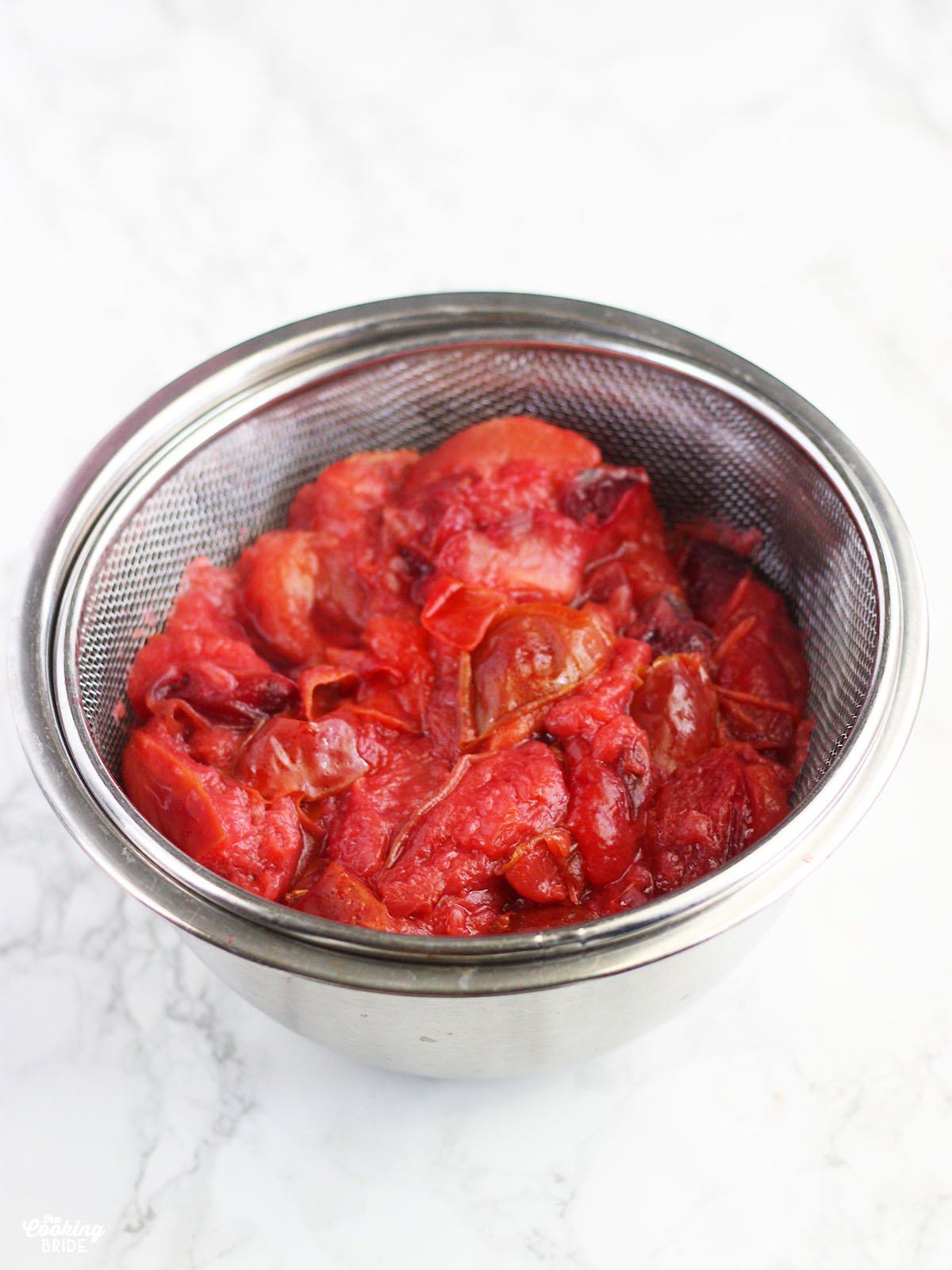
By this time, the fruit has drained and the juice has cooled (The color reminds me of a formal dress I wore in high school. Pretty, isn’t it?). You should have about 5 ½ cups of juice. Pour the juice back into a stock pot and add one package of pectin.
Wait, what’s pectin?
Pectin is a naturally occurring fiber found in fruits. It helps to thicken the jelly to a spreadable consistency. Some fruits have more pectin than others.
There are recipes out there for no-pectin jams and jellies. I haven’t had the best luck with them. I’d rather put the time in to make jelly only to end up with syrup. If you are worried about sugar, there are some low sugar pectins out there that I have had great success with.
Why Do You Add Butter to Homemade Jam?
We’re also going to one tablespoon of butter to the pot. As your juice boils, it will start to foam. The foam is just air bubbles and it won’t hurt you to eat it. But it can cause your jelly to look cloudy. If you are planning on canning your jelly, it can also affect the shelf life. The butter breaks the surface tension and prevents the foam from forming in the first place.
However, if you forget the butter, don’t sweat it. You’ll just need to skim the foam off the top before pouring the jelly into jars.
How to Make Plum Jelly
Once you’ve added the pectin and butter, bring the juice to a full rolling boil over high heat. That just means that the boil doesn’t stop when you stir it. Keep boiling and add the sugar. Boil for one minute. Boiling it for longer will cause the jelly to become more firm and harder to spread. Skim off any foam that has formed with a metal spoon. Discard the foam.
The jelly will be syrupy at first. It will thicken as it cools. But if you’re just dying to know if the jelly set or not, there is a way to test it. Stick a meta spoon in the freezer for several minutes. Once it’s good a cold, lay it on the counter and dribble a few drops of the jelly on it. The jelly on the spoon should set within a matter of minutes.
How to Store Homemade Plum Jelly
Jelly has a longer shelf life than other types of jams or preserves because of its higher sugar content. Jelly what has not been canned will last one year in the fridge.
I prefer to can my homemade jams and jellies. Because of its high acid content, plum jelly can be processed using the water bath canning method. Check out my beginner’s guide to waterbath canning.
Simply fill clean jars, leaving ¼-inch of headspace. Fill the pot until the jars are covered with at least one-inch of water. Bring the water to a boil, then cover the pot and process for ten minutes. Remove the pan from the heat.
Give the jars 24 hours to cool. Then check the seal by pressing the center of the lid. If it doesn’t give, your jars are sealed!
I’m happy to report, no more store bought jelly for Big Brother’s peanut butter sandwich. He’s seen the error of his ways and I have forgiven him. All is right in the universe.
You Might Also Enjoy:
- Beginner’s Guide to Water Bath Canning
- How to Make Homemade Strawberry Jam
- Pepper Jelly
- Vanilla Bean Honeysuckle Jelly
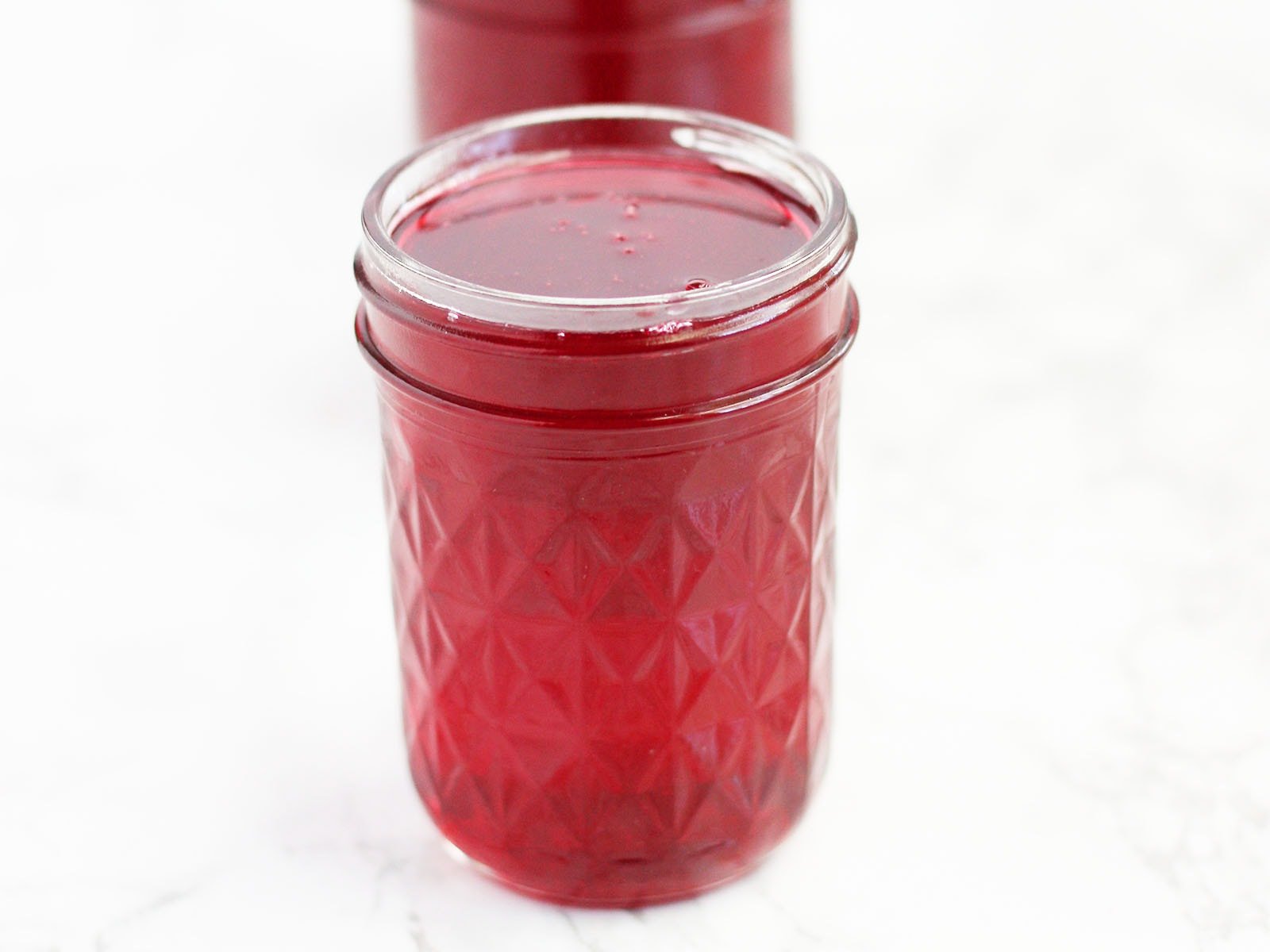
Homemade Plum Jelly
Ingredients
- 5 pounds fully ripe plums
- 1-1/2 cups water
- 1 (1.75 ounce) box fruit pectin
- 1 tablespoon unsalted butter
- 6-1/2 cups granulated sugar
Instructions
- Slice the plums in half and remove and discard the pits. Don’t bother peeling them.
- Place the plums in a large stockpot. Add the water. Bring the pot to a boil, then cover and simmer over medium heat for 10 minutes.
- Strain the juice by pouring through a fine mesh strainer or line a colander with several layers of cheesecloth. Allow the fruit to drain for about 30 minutes. Discard the fruit.
- You should have about 5 ½ cups of plum juice. Pour the juice back into the pot. Add one box of pectin and the butter. Bring the juice to a hard rolling boil.
- Add the sugar. Continue to boil the jelly for one minute. Remove the pot from the heat. Skim any foam from the top with a metal spoon.
- Ladle the jelly into clean jars. Jelly can be stored for one year in the fridge.
- Jelly can also be canned using the water bath canning method. Leave ¼ – inch of headspace in each jar. Top with lids and bands. Process for 10 minutes. Unopened jars can be stored in a cool, dry place for up to 2 years.

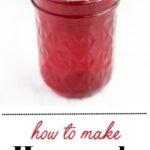
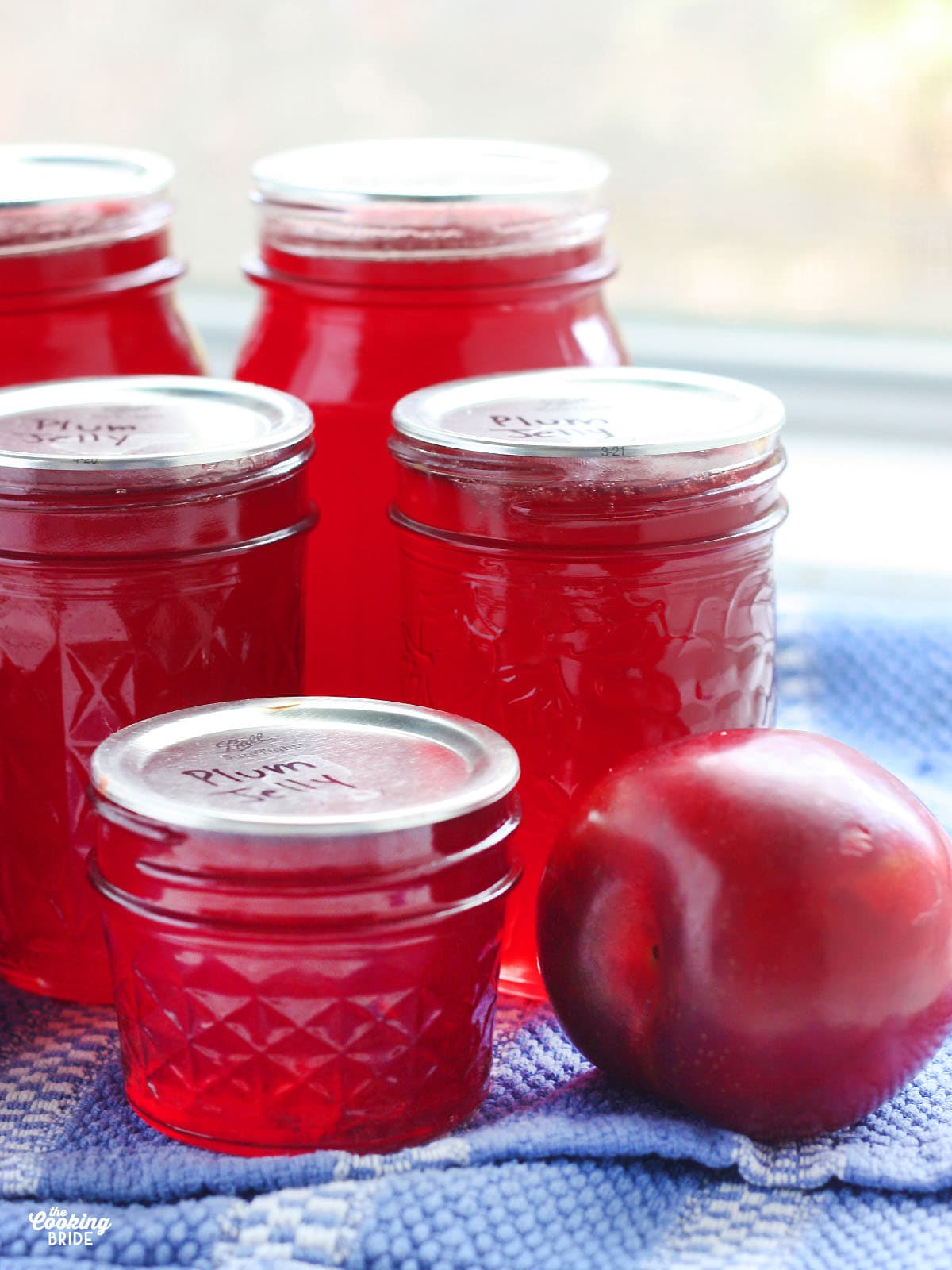

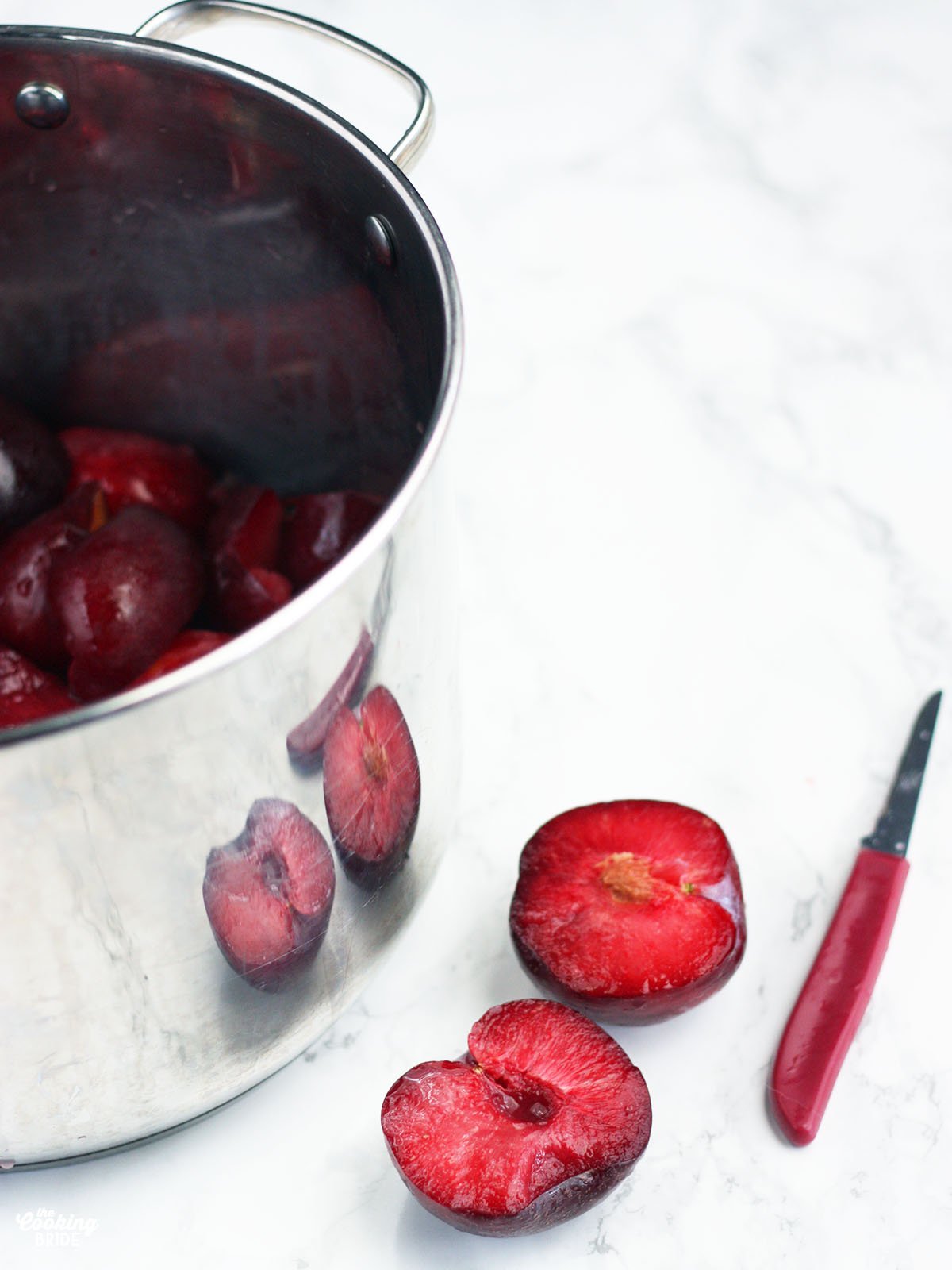
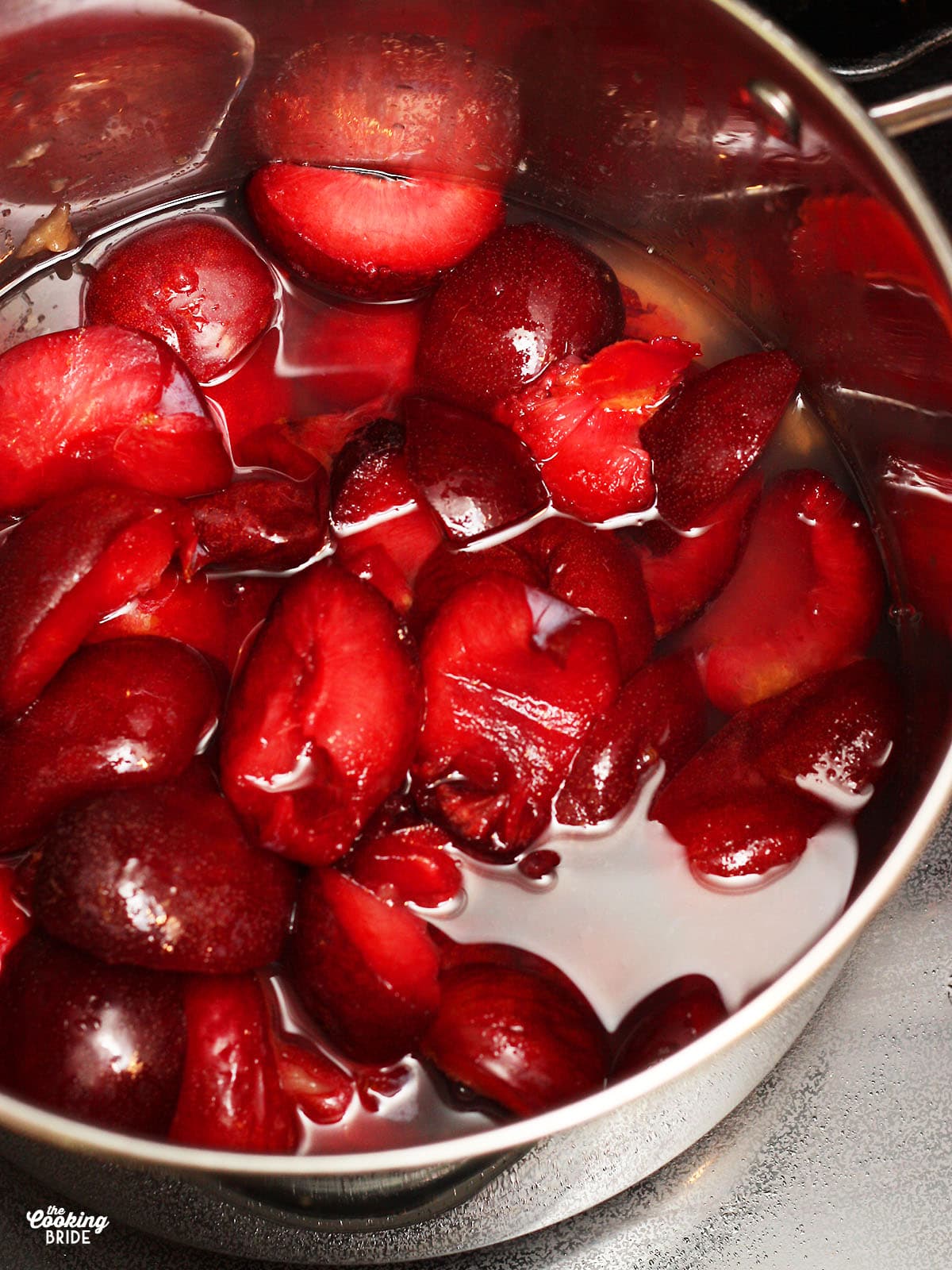
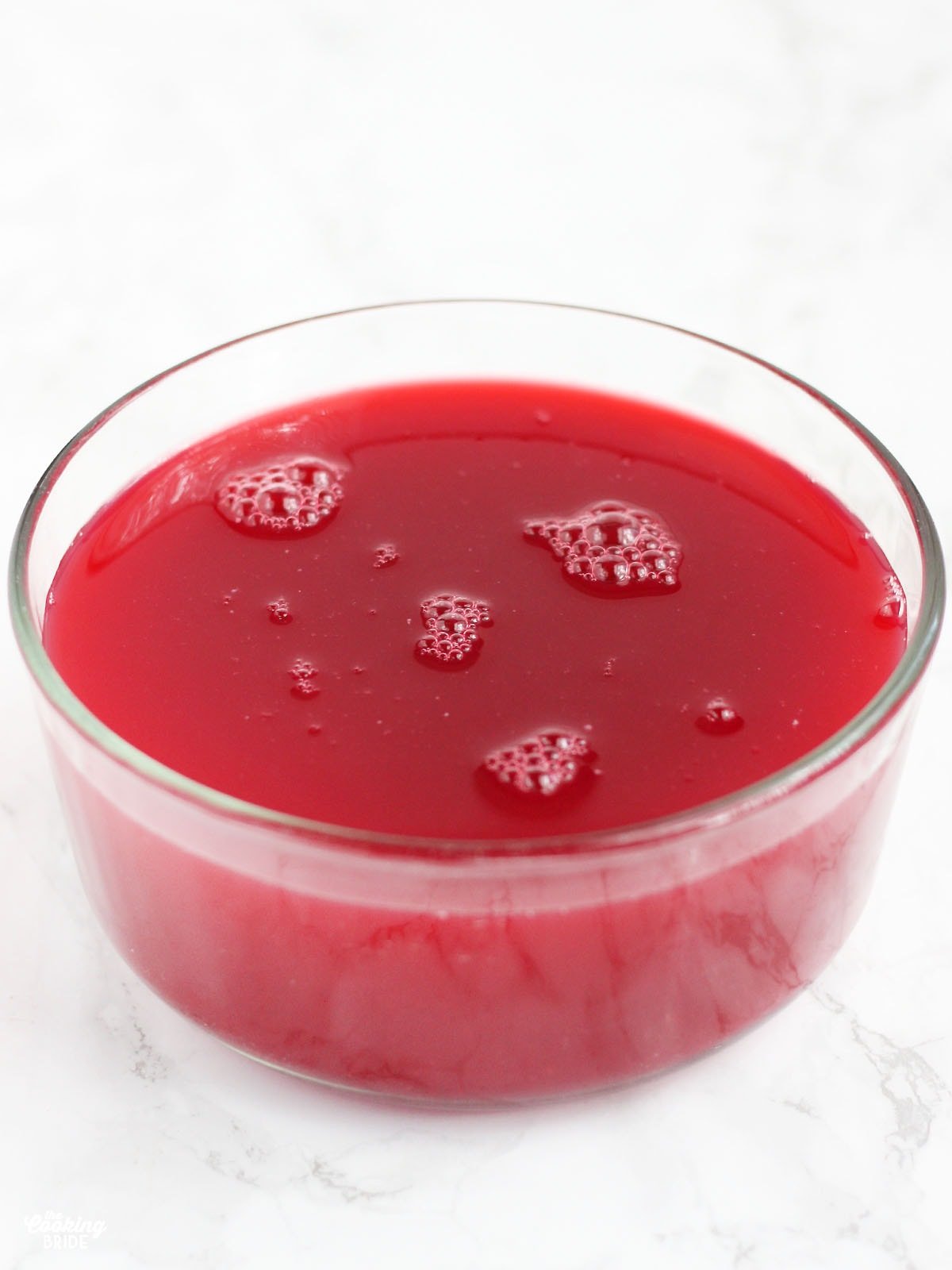
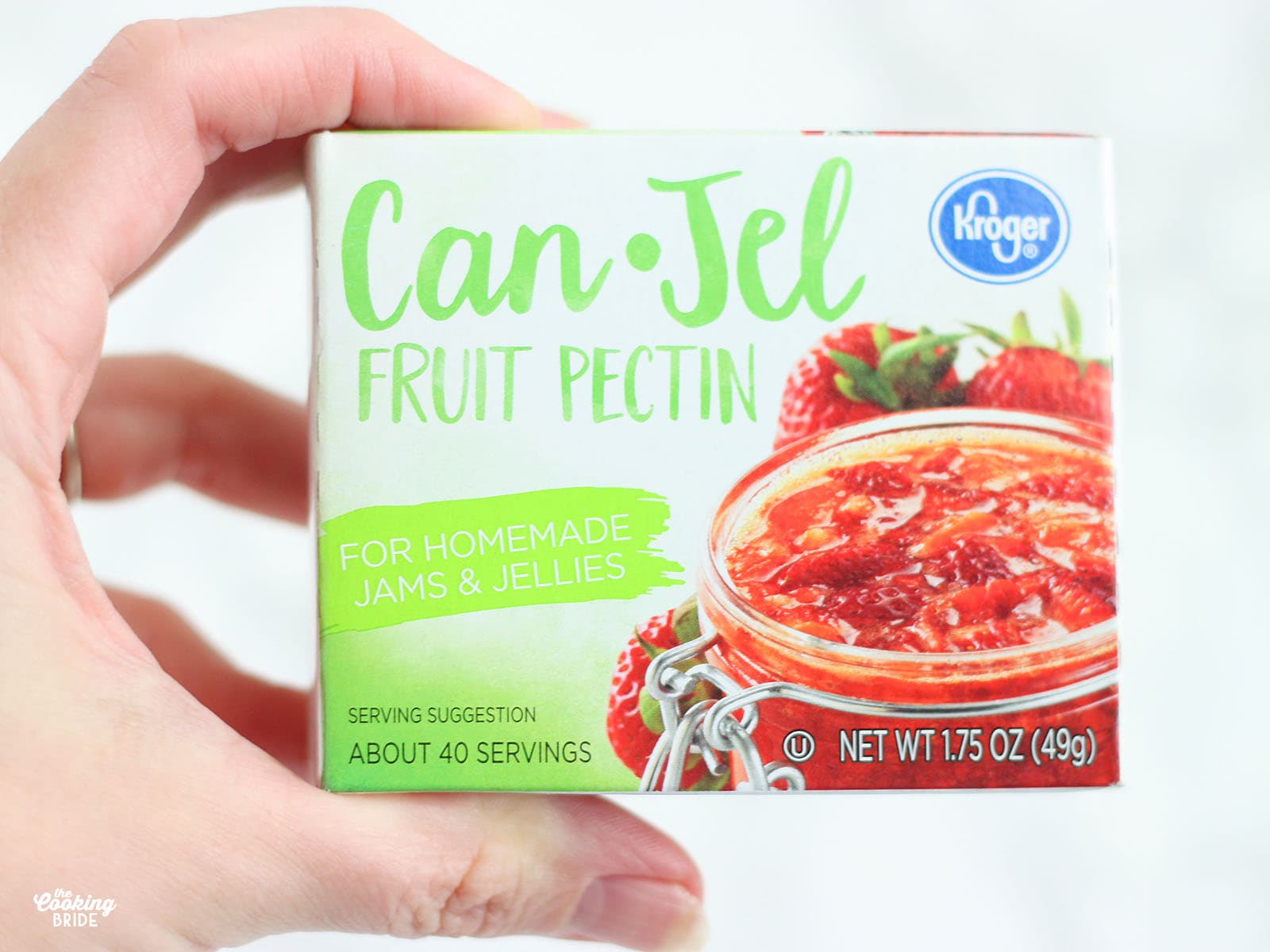
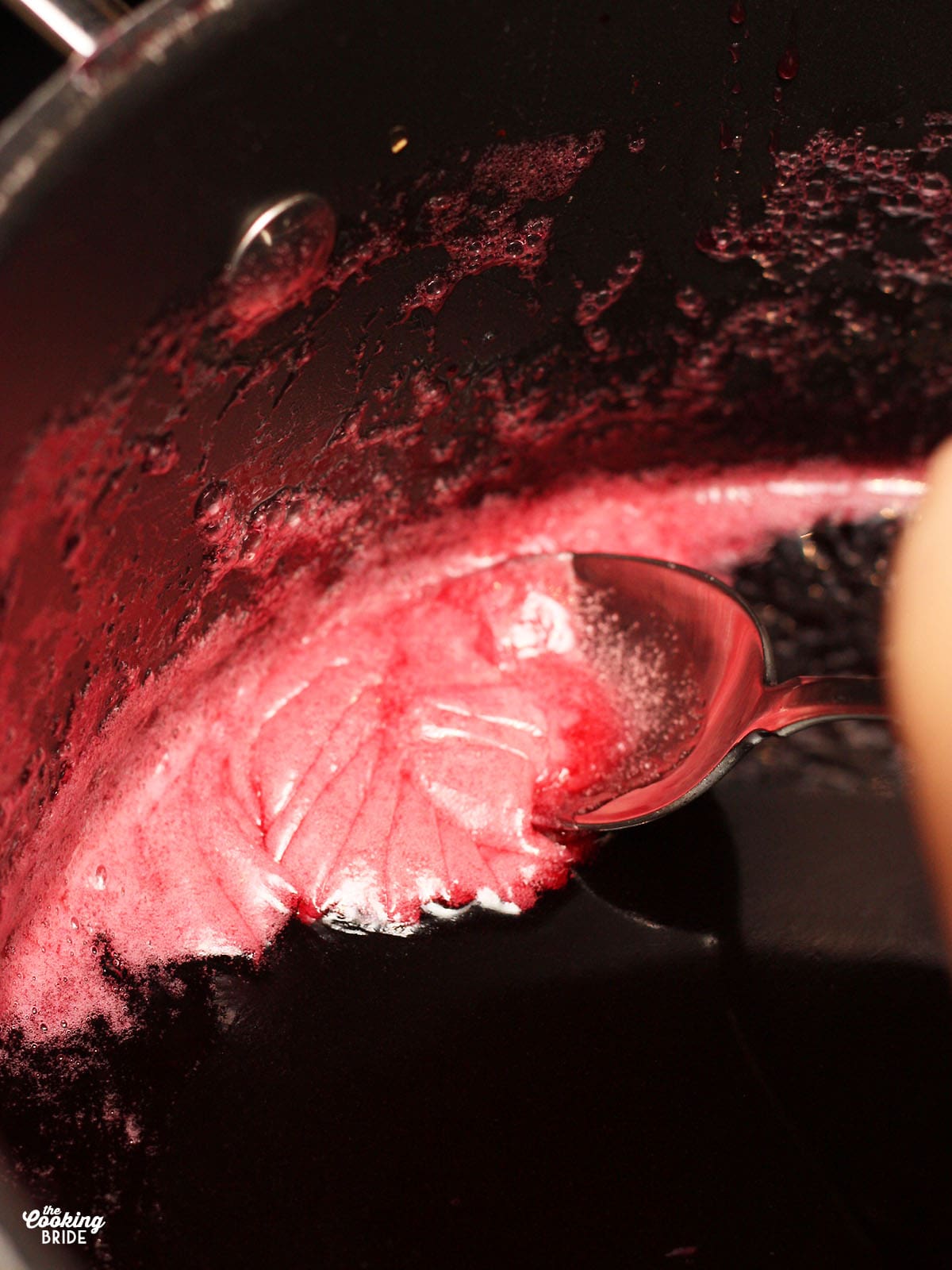
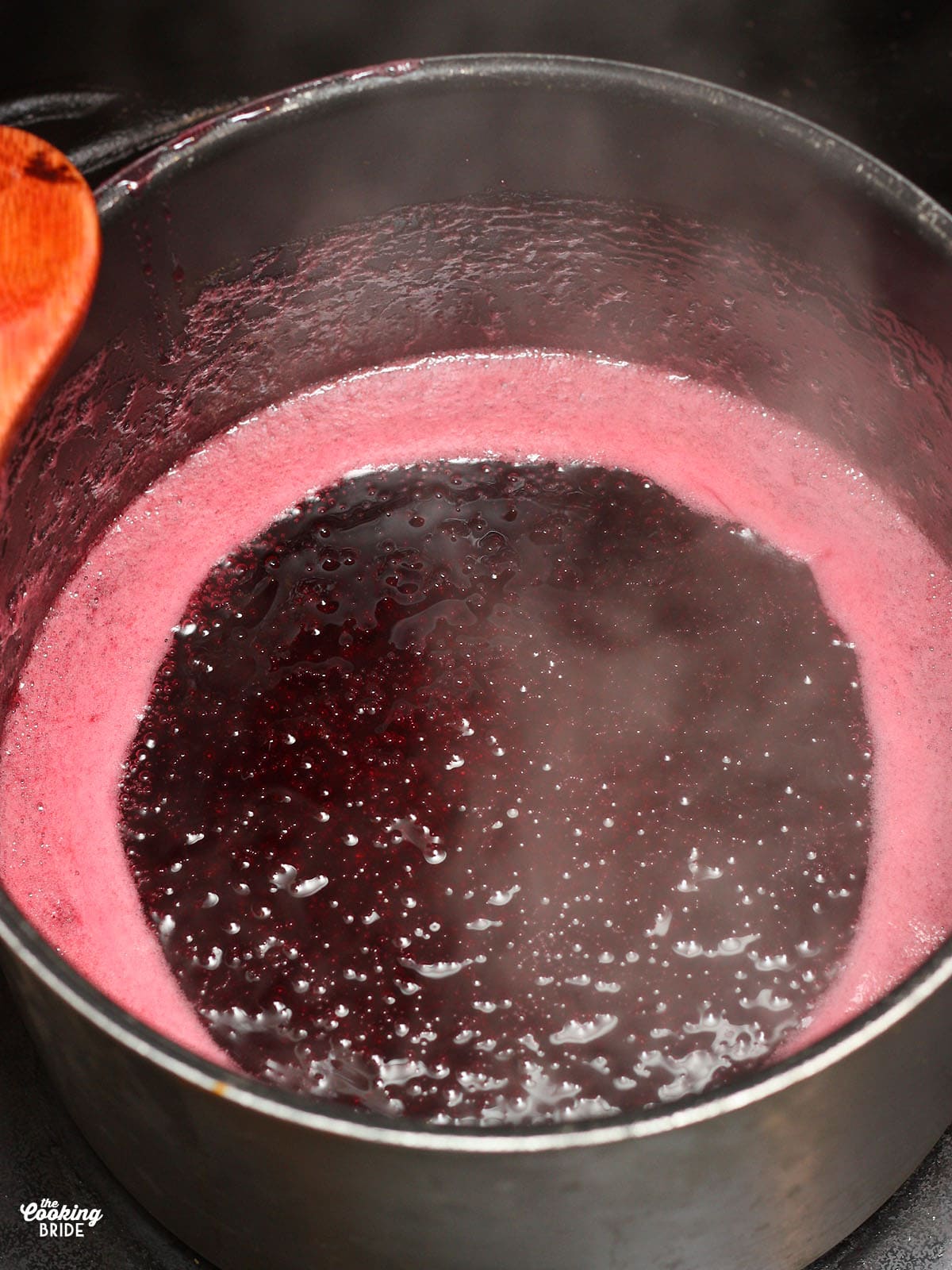
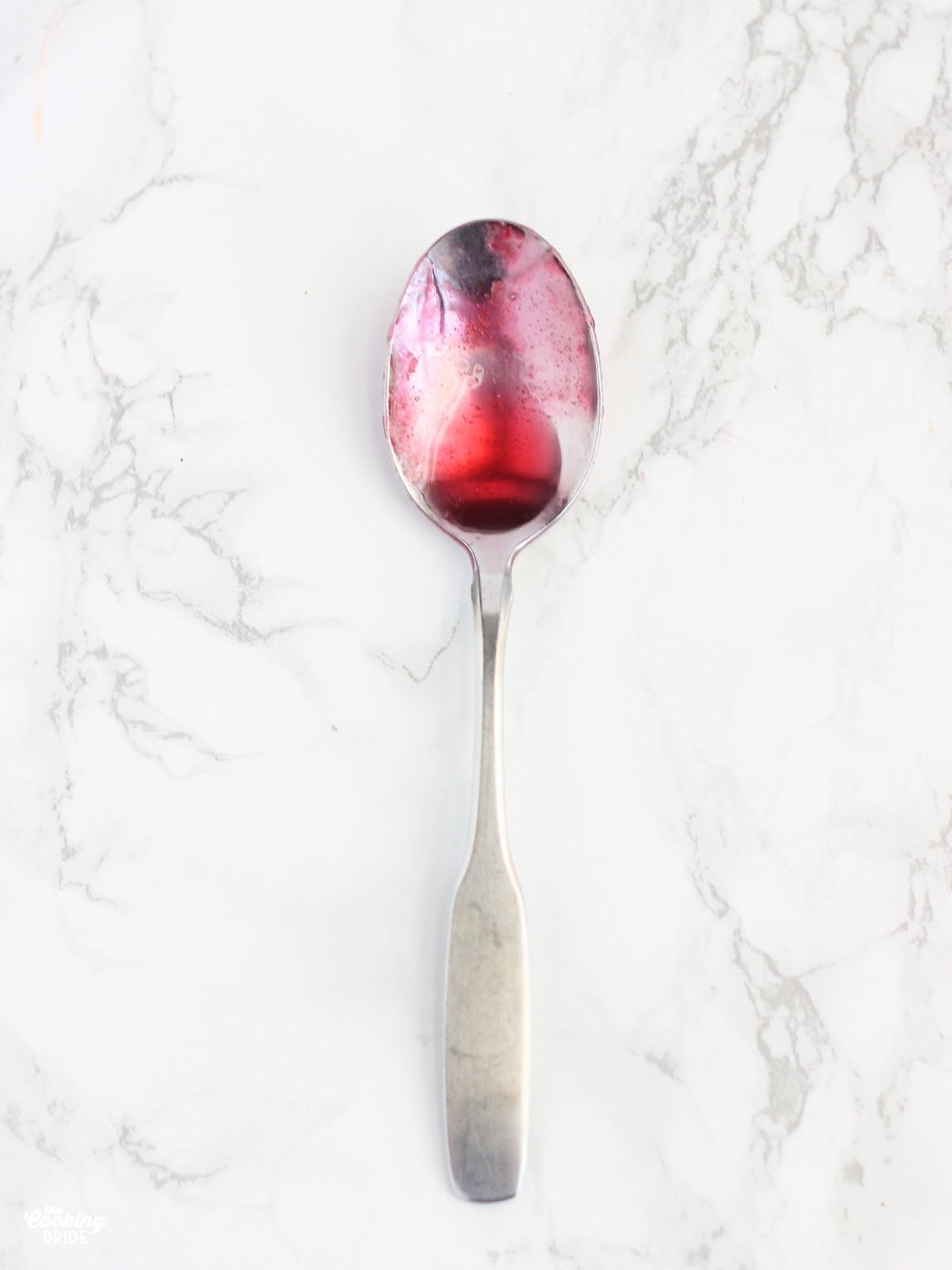
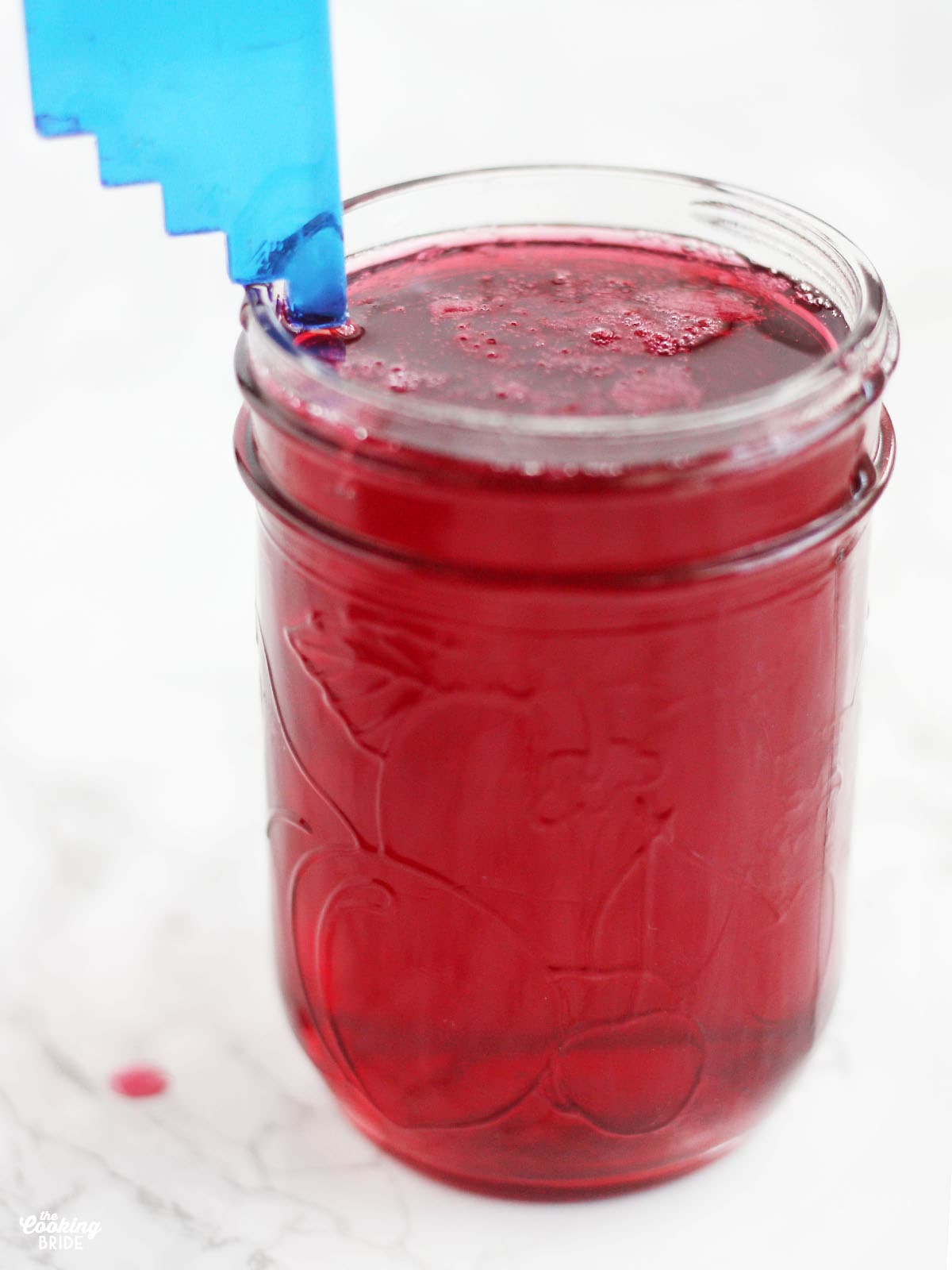
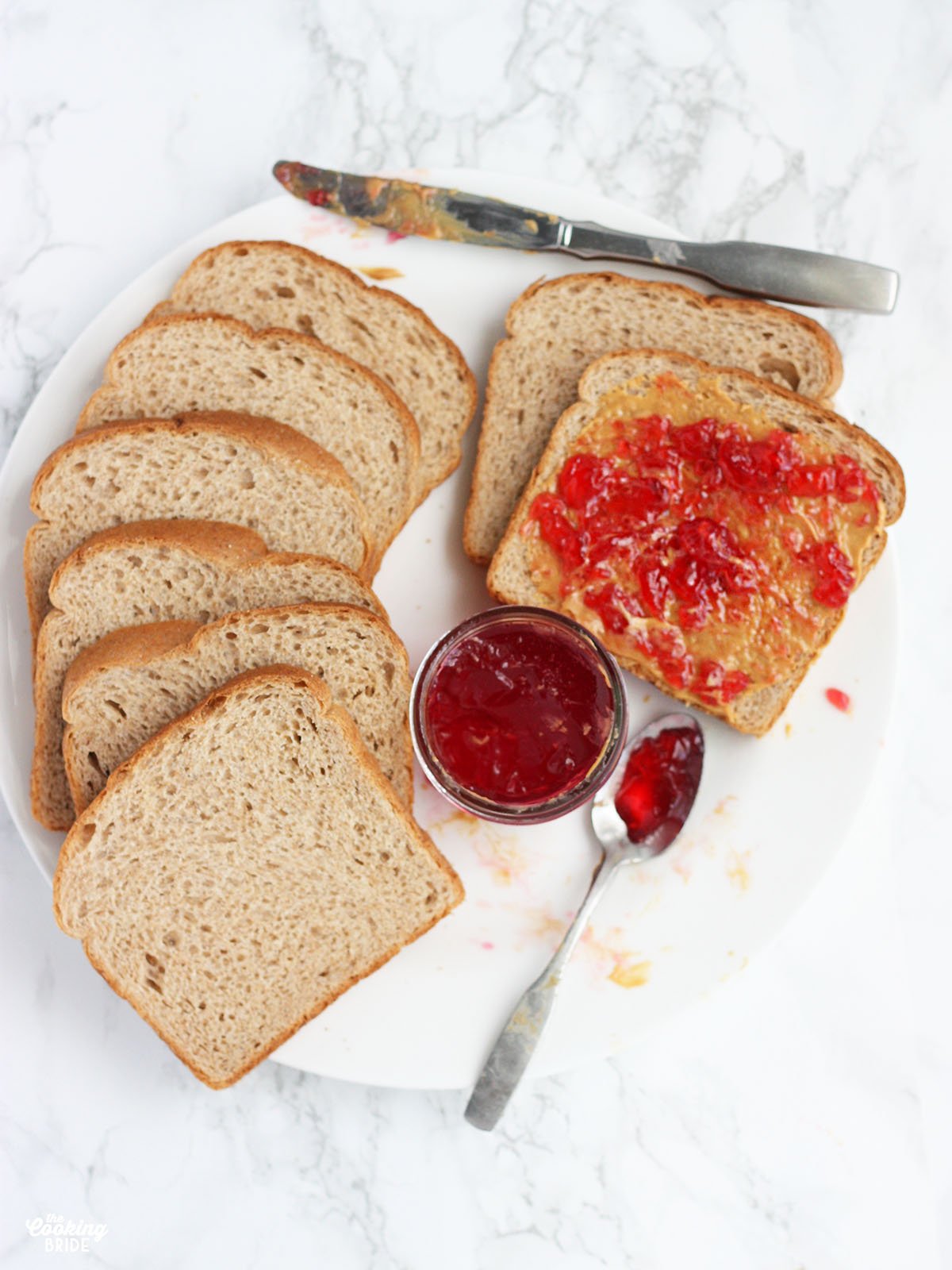
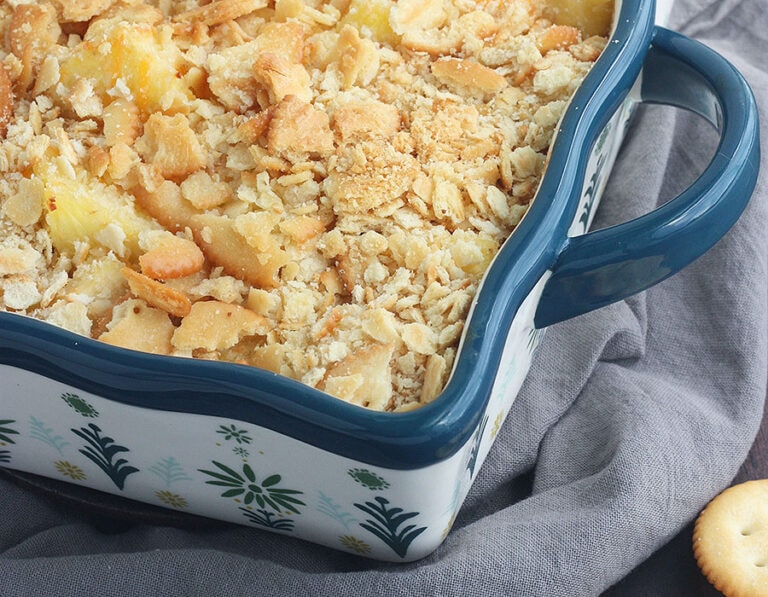

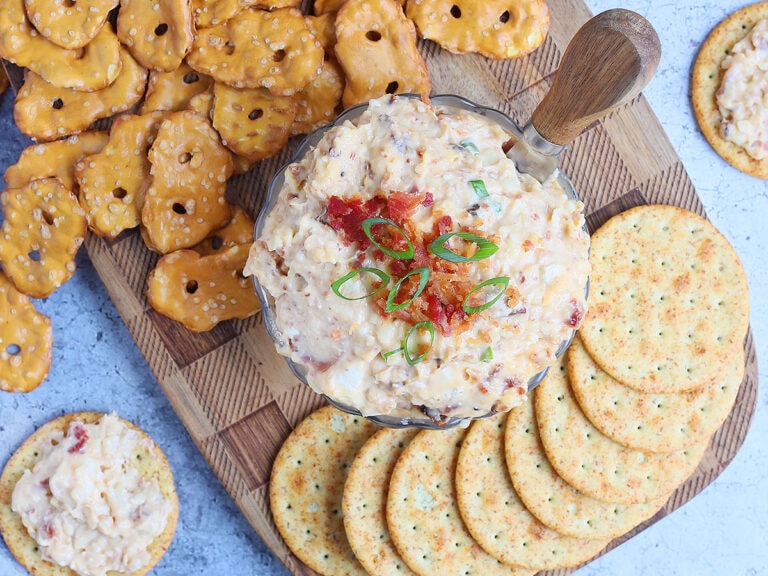
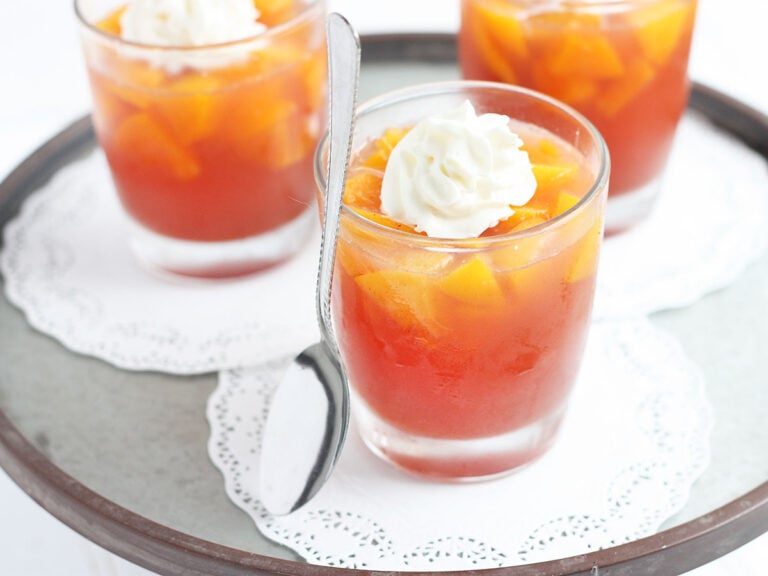
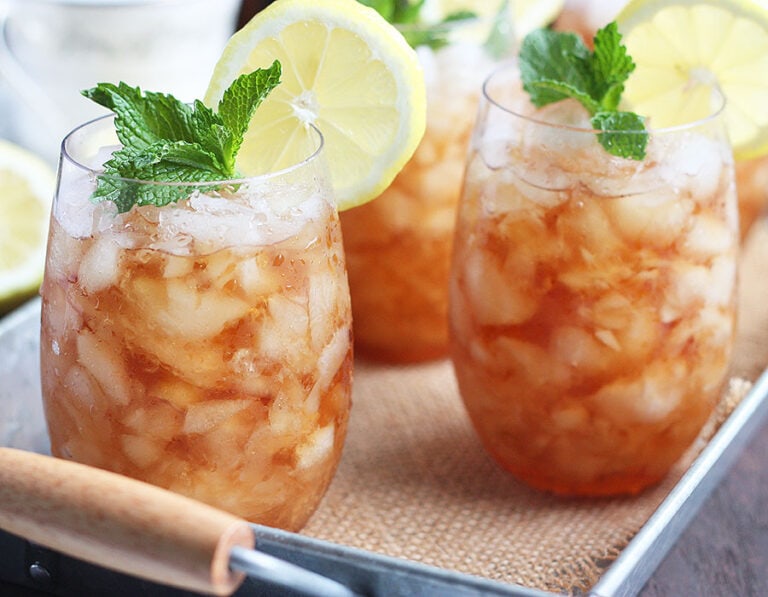
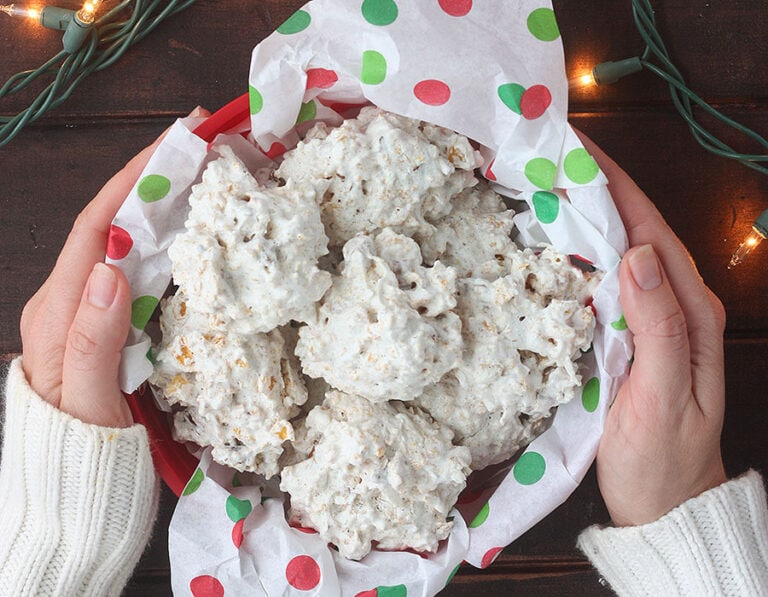
I love the idea of plum-basil jelly! I hope you will come back and tell me how that tastes … I may try that next summer. I’m glad you enjoyed the recipe and found the post helpful.
Tried your recipe for the first time. Much easier than the recipes I’ve used in the past. Made plain wild plum jelly and I’m currently working on a batch of wild plum-basil jelly. Will add any leftover juice to my mixed fruit jelly after that
Hi, Rechelle! That’s okay if you got more than five cups. You may have just had really juicy plums. You can use the extra juice to make more jelly with adjustments. For every additional cup of juice, add 3/4 teaspoon of pectin and 3/4 cup of sugar.
The plum solids leftover after straining are safe to eat. You can stir them into yogurt or oatmeal or spoon them over ice cream. If you garden and have compost bin, you can also toss them in there.
I am new at canning.This will be my 1st,so I have questions.
1–I got more than 5cups of juice
2—do u mash the cooked plums for more juice.?
3—wat do you do with the (meat from plum) don’t no how to say it.?
Rec
I’m going to try this recipe this weekend. It’ll be my first time making jelly. I’d love to have Bill’s jalapeño plum jelly recipe! Sounds delicious too!
Thank you so much for coming back and giving us an update, Bill! My interest is piqued. I’m definitely going to give that a try.
Update on the Jack Daniel’s plum. Finally set and it’s awesome. Did everything per the recipe but added 2 cups Jack Daniel’s while it was cooking. Really awesome taste, if you love JACK you will love the taste of this
OMG, Jack Daniel’s plum!!
That sounds amazing!
Second time for this receipe, I absolutely love it. Made banana plum, jalapeño plum, peach plum, just plum, and the first year for Jack Daniel’s plum. Can’t wait to try that when it’s set. I will let you know. My tree just went nuts this got 3, 5 gallon buckets out of it. 122 jars of jelly
Oh my goodness, Glenda! You have been busy! I am glad you found the recipe easy. Enjoy your jam and thank you for coming back and leaving a comment.